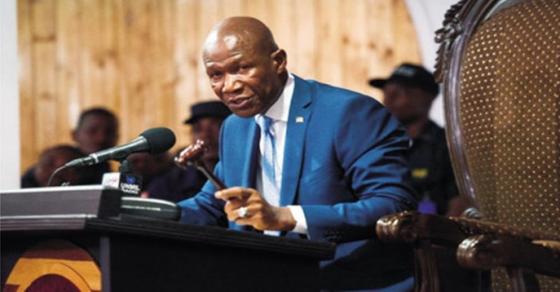Liberia: House of Representatives Pauses Ferry Transport Services Act

`Speaker Bhofal Chambers.
— But approves US$44.6M deal for women and girls empowerment
The House of Representatives has failed to concur with the Senate on a bill seeking to establish a ferry transport service to be operated by the National Transit Authority (NTA) across the country.
The Senate amended the National Transit Authority Act to establish a Ferry Transport Service on March 7, thus seeking a timely concurrence.
But the House on May 16, failed to concur with the Senate and instead mandates it joint Committee on Transport and Judiciary to review and advise the House upon its resumption on May 11,
The bill was expected to expand the scope of operation of the NTA to provide marine or waterway transportation using ferry boats as an alternative to buses, which cannot reach many parts of the country.
According to the bill, NTA would have also built passenger and cargo terminals in each county, as well as maintenance facilities.
Improving livelihoods for women, girls
Meanwhile, members of the House have unanimously passed a US$44.6 million financing package aimed at improving economic livelihoods and access to social services for women and girls in targeted communities.
The financial agreement was signed on July 4, 2022, by the International Development Association and the Republic of Liberia. The House’s decision was triggered by a report from the Joint Committee on Ways, Means, Finance and Development Planning, the Judiciary, and Gender.
The financial agreement, which is part of the Liberia Women Empowerment Project (LWEP) is expected to address in a comprehensive way the various key constraints and barriers that women and girls in Liberia face in realizing their full potential.
In particular, the project will empower women and girls by providing them with grants to start and expand women-led businesses across various sectors and providing them with the relevant training and mentoring so that they are successful in such businesses.
The project will also support positive changes in social norms, behavior, and attitudes that create a conducive and safe social environment for women and girls and empower them to make individual and collective life-changing decisions including access to economic opportunities, education, and health services.
